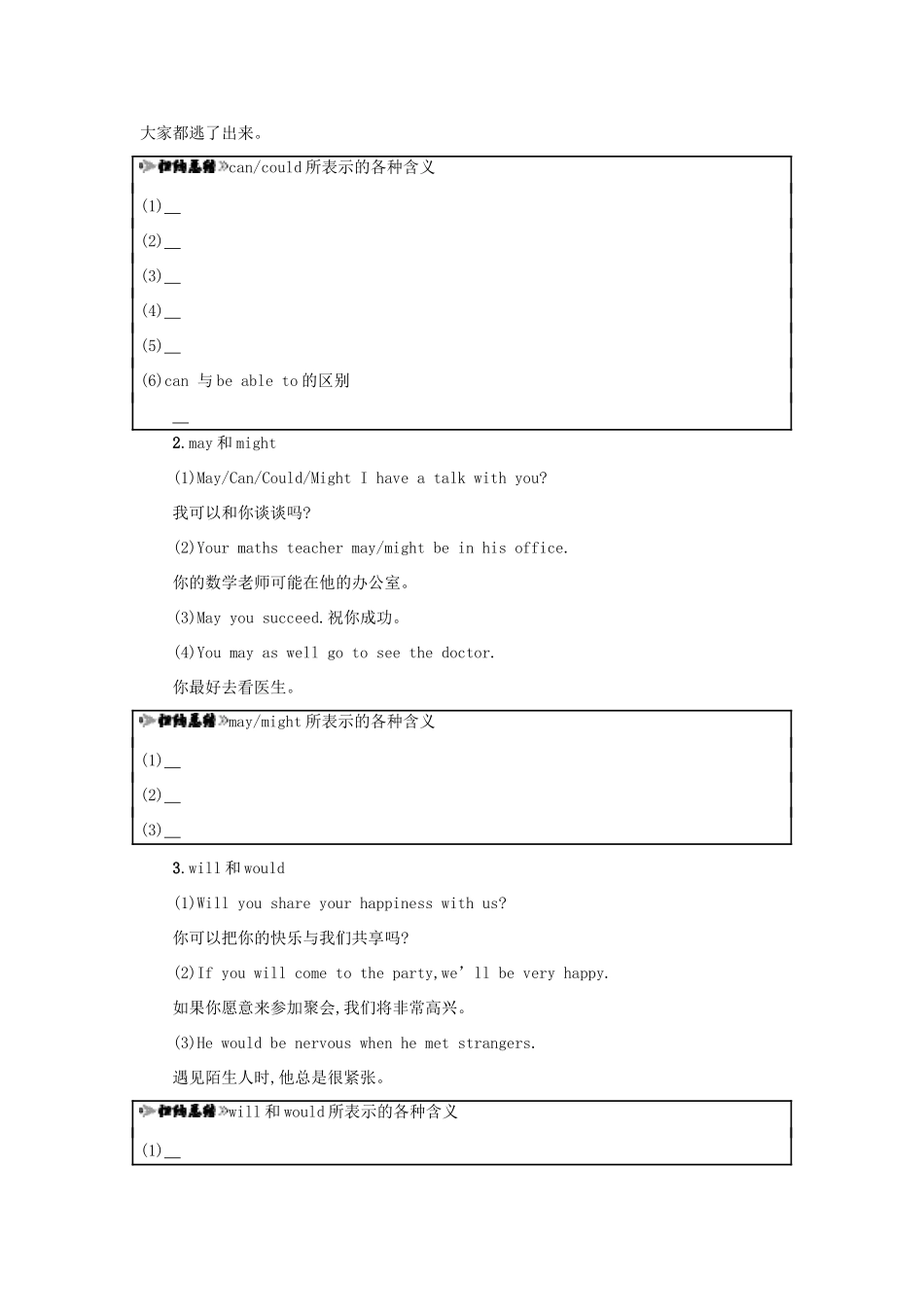Unit 1 Festivals around the worldPeriod 4 语法专题课学习目标1.To master the usage of modal verbs,such as can,may,must,should,shall,etc.2.To learn to use modal verbs in real situations through practice.学习过程Ⅰ.情态动词的定义用来表示说话人的某种感情或语气,对某一动作或状态的看法、态度,即说话人认为某事“可能”“或许”“应该”或是“必须”等意义。Ⅱ.情态动词的特点(1)情态动词本身不能单独作谓语,其后加动词原形。(2)情态动词没有人称和数的变化,只用在一般现在时和一般过去时中(have to 除外),情态动词的现在式可以表示现在和将来;过去式除了表示过去外,还可用于表示较为委婉的语气,例如:could,would 等。Ⅲ.情态动词can/could,be able to,may/might,will/would,shall/should,must,have to 的意义和用法学习建议:根据所列例句,理解并尝试总结情态动词的基本用法。1.can 和 could (1)He can speak both English and French.他会说英语和法语。(2)Could/Can you tell me how to get to the zoo?你能告诉我怎么去动物园吗?(3)Electricity can be dangerous sometimes if used wrongly.用电错误,有时可能会很危险。(4)Where can/could they have gone?他们可能去哪儿呢?(5)How could you do such a silly thing?你怎么能做这样的傻事?注意:can 与 be able to 的区别(1)No one could/was able to answer the question.没人能回答这个问题。(2)The fire spread quickly,but everyone was able to escape.火势迅速蔓延,但大家都逃了出来。can/could 所表示的各种含义(1) (2) (3) (4) (5) (6)can 与 be able to 的区别 2.may 和 might(1)May/Can/Could/Might I have a talk with you?我可以和你谈谈吗?(2)Your maths teacher may/might be in his office.你的数学老师可能在他的办公室。(3)May you succeed.祝你成功。(4)You may as well go to see the doctor.你最好去看医生。may/might 所表示的各种含义(1) (2) (3) 3.will 和 would(1)Will you share your happiness with us?你可以把你的快乐与我们共享吗?(2)If you will come to the party,we’ll be very happy.如果你愿意来参加聚会,我们将非常高兴。(3)He would be nervous when he met strangers.遇见陌...


